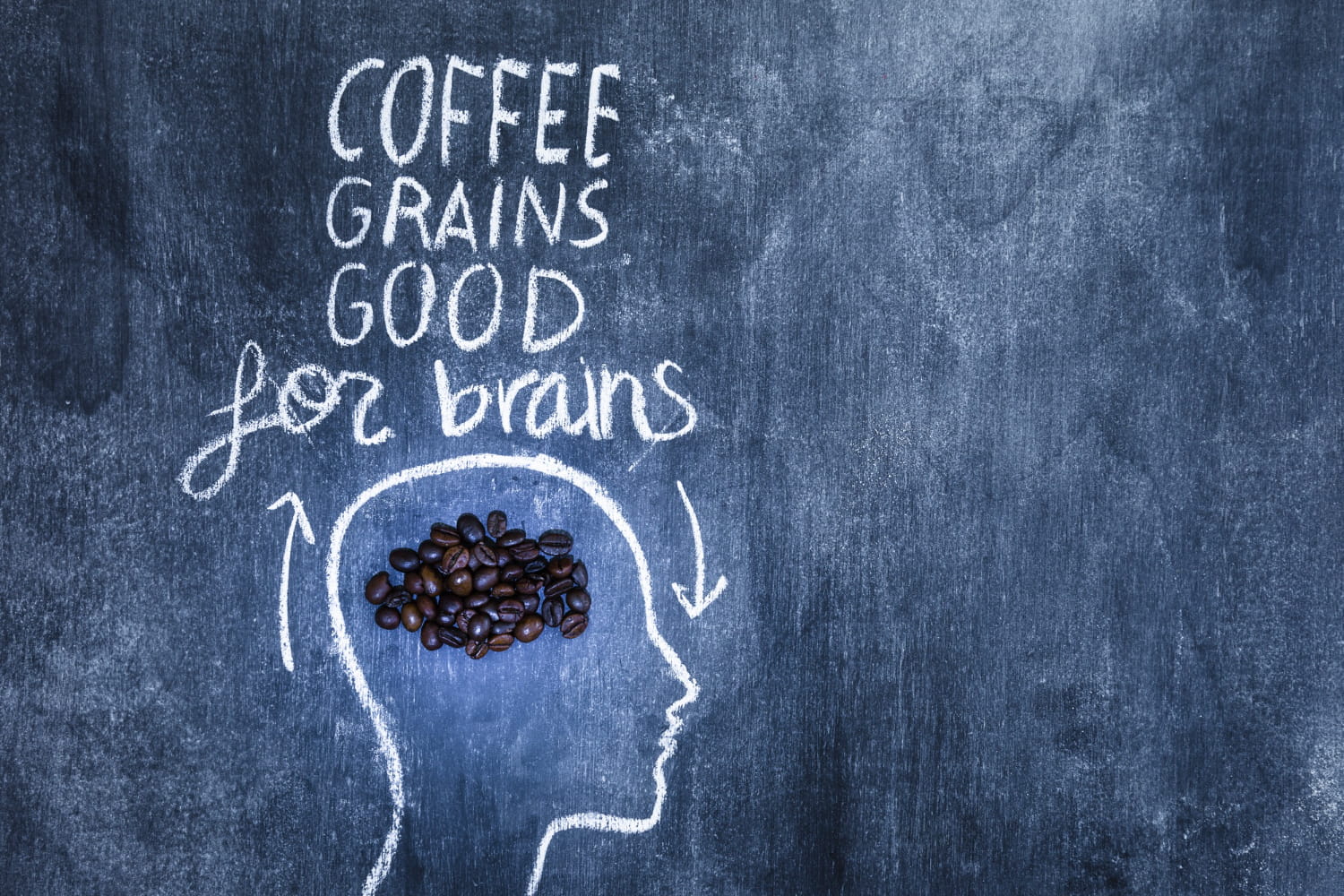Coffee is one of the most popular beverages in the world, enjoyed by millions of people every day. But did you know that there are actually numerous health benefits associated with drinking coffee?
From boosting energy levels to reducing the risk of certain diseases, the science behind coffee’s positive effects on our health is constantly being studied and confirmed.
In this article, we will explore some of the science-backed health benefits of drinking coffee and how it can potentially improve our overall well-being. So grab a cup of your favorite brew and read on to learn more about the surprising benefits of this beloved beverage.
Improved Cognitive Function
Studies have shown that caffeine, the main active ingredient in coffee, can improve cognitive function by increasing alertness, concentration, and reaction time. This can lead to improved productivity and performance in daily tasks.
Coffee is one of the most popular beverages in the world, with millions of people starting their day with a cup of this aromatic and energizing drink. While some may view coffee as just a morning pick-me-up, there is actually a wealth of scientific evidence that supports the numerous health benefits of drinking coffee. In this article, we will delve into the science-backed benefits of coffee, specifically in terms of improved cognitive function.
First and foremost, it is important to understand that caffeine is the main active ingredient in coffee. This compound is a stimulant that works by blocking the effects of adenosine, a neurotransmitter that promotes relaxation and drowsiness. By doing so, caffeine increases the activity of other neurotransmitters such as dopamine and norepinephrine, which can improve mood, energy levels, and cognitive function.
One of the most well-known benefits of coffee is its ability to increase alertness. This is due to caffeine’s ability to block adenosine, which can make us feel sleepy and sluggish. Studies have shown that caffeine can improve alertness and reduce fatigue, leading to increased productivity and performance in daily tasks. In fact, a study published in the Journal of Applied Physiology found that consuming caffeine before a task can significantly improve performance, especially in tasks that require sustained attention.
In addition to alertness, caffeine has also been shown to improve concentration. This is because caffeine can increase the activity of dopamine, a neurotransmitter that plays a key role in attention and focus. A study published in the journal Psychopharmacology found that caffeine can improve sustained attention and working memory, which are crucial for tasks that require concentration and mental effort.
Furthermore, caffeine has been linked to improved reaction time. This is particularly beneficial for activities that require quick reflexes, such as driving or playing sports. A study published in the journal Nutrients found that caffeine can improve reaction time and accuracy in tasks that require rapid responses. This can be especially helpful for individuals who need to be alert and quick on their feet, such as athletes or emergency responders.
But the benefits of coffee on cognitive function don’t just stop at alertness, concentration, and reaction time. Studies have also shown that caffeine can have a positive impact on memory. A study published in the journal Nature Neuroscience found that caffeine can enhance long-term memory consolidation, which is the process of storing information in our long-term memory. This can be particularly beneficial for students or individuals who need to retain large amounts of information.
Moreover, coffee has been linked to a reduced risk of cognitive decline and neurodegenerative diseases such as Alzheimer’s and Parkinson’s. A study published in the Journal of Alzheimer’s Disease found that caffeine intake was associated with a lower risk of developing Alzheimer’s disease. This is thought to be due to caffeine’s ability to reduce inflammation and protect brain cells from damage.
In conclusion, the science-backed benefits of coffee on cognitive function are numerous and significant. From increased alertness and concentration to improved reaction time and memory, caffeine has been shown to have a positive impact on our brain’s performance. So the next time you reach for that cup of coffee, remember that not only does it taste good, but it also has numerous health benefits that can improve your daily life.
Reduced Risk of Chronic Diseases
Coffee contains a high amount of antioxidants, which can help protect the body against damage from free radicals. This has been linked to a reduced risk of chronic diseases such as type 2 diabetes, Alzheimer’s, and certain types of cancer
Coffee is one of the most popular beverages in the world, with over 400 billion cups consumed each year. It is a staple in many people’s daily routines, providing a much-needed boost of energy and alertness. But did you know that coffee also has numerous health benefits backed by science? In this article, we will explore the reduced risk of chronic diseases associated with drinking coffee.
One of the main reasons coffee is considered a healthy beverage is due to its high antioxidant content. Antioxidants are compounds that help protect the body against damage from free radicals, which are unstable molecules that can cause harm to cells and tissues. Free radicals are produced naturally in the body, but environmental factors such as pollution and UV radiation can increase their levels, leading to oxidative stress and chronic diseases.
Studies have shown that coffee contains a significant amount of antioxidants, including polyphenols and hydrocinnamic acids. These compounds have been linked to a reduced risk of chronic diseases such as type 2 diabetes, Alzheimer’s, and certain types of cancer. In fact, a study published in the Journal of Nutrition found that coffee consumption was associated with a lower risk of type 2 diabetes, with each additional cup of coffee per day resulting in a 7% reduction in risk.
Alzheimer’s disease is a progressive neurodegenerative disorder that affects millions of people worldwide. It is characterized by memory loss, cognitive decline, and changes in behavior. While there is no cure for Alzheimer’s, research has shown that coffee consumption may help prevent or delay its onset. A study published in the Journal of Alzheimer’s Disease found that moderate coffee consumption (3-5 cups per day) was associated with a lower risk of Alzheimer’s disease and other forms of dementia.
Coffee has also been linked to a reduced risk of certain types of cancer. A meta-analysis of 59 studies found that coffee consumption was associated with a lower risk of liver cancer, with each additional cup of coffee per day resulting in a 14% reduction in risk. Other studies have also shown a potential protective effect of coffee against colorectal, prostate, and breast cancer.
In addition to its antioxidant content, coffee also contains other beneficial compounds such as caffeine and chlorogenic acid. Caffeine is a stimulant that can improve alertness, concentration, and mood. It has also been shown to increase metabolic rate and fat burning, making it a popular ingredient in weight loss supplements. Chlorogenic acid, on the other hand, has been linked to a lower risk of heart disease and improved blood sugar control.
While coffee has numerous health benefits, it is important to note that these effects may vary depending on individual factors such as genetics and lifestyle. For example, some people may be more sensitive to caffeine and experience negative side effects such as anxiety and insomnia. It is also worth mentioning that the health benefits of coffee are mainly associated with moderate consumption (3-5 cups per day). Excessive intake may lead to adverse effects such as increased heart rate and blood pressure.
In conclusion, coffee is not just a delicious and energizing beverage, but it also has numerous health benefits backed by science. Its high antioxidant content has been linked to a reduced risk of chronic diseases such as type 2 diabetes, Alzheimer’s, and certain types of cancer. However, it is important to consume coffee in moderation and be mindful of individual sensitivities. So go ahead and enjoy your daily cup of coffee, knowing that it may be contributing to your overall health and well-being.
Boosted Physical Performance
Caffeine has been shown to increase adrenaline levels in the body, which can improve physical performance during exercise. It can also help with muscle recovery and reduce muscle soreness after a workout. This makes coffee a popular pre-workout drink among athletes
Coffee is one of the most popular beverages in the world, with over 400 billion cups consumed each year. It has become a staple in many people’s daily routines, providing a much-needed energy boost to start the day. But did you know that coffee also has numerous health benefits backed by science? In this article, we will explore the physical performance-boosting effects of coffee and how it can benefit athletes and fitness enthusiasts.
One of the main reasons people turn to coffee is for its ability to increase alertness and energy levels. This is due to its high caffeine content, which is a natural stimulant. When consumed, caffeine is absorbed into the bloodstream and travels to the brain, where it blocks the effects of adenosine, a neurotransmitter that makes you feel tired. This results in increased alertness, improved focus, and a feeling of being more awake.
But the benefits of caffeine go beyond just keeping you awake. Studies have shown that caffeine can also improve physical performance during exercise. This is because caffeine stimulates the production of adrenaline, a hormone that prepares the body for physical exertion. Adrenaline increases heart rate, blood flow to muscles, and the release of glucose into the bloodstream, providing the body with the necessary energy to perform at its best.
In fact, a study published in the Journal of Applied Physiology found that caffeine can improve endurance performance by up to 11%. This is especially beneficial for endurance athletes, such as runners or cyclists, who need to sustain their energy levels for long periods. Caffeine has also been shown to increase strength and power output, making it a valuable tool for athletes who engage in high-intensity activities.
But it’s not just during exercise that coffee can benefit physical performance. Research has also shown that caffeine can aid in muscle recovery and reduce muscle soreness after a workout.
This is because caffeine helps to increase blood flow to the muscles, delivering oxygen and nutrients that are essential for repairing and rebuilding muscle tissue. It also helps to reduce inflammation, which can contribute to muscle soreness.
In addition to its physical performance-boosting effects, coffee also has numerous other health benefits. It is rich in antioxidants, which help to protect the body from damage caused by free radicals.
Free radicals are unstable molecules that can damage cells and contribute to the development of chronic diseases, such as cancer and heart disease.
By consuming coffee, you are providing your body with a powerful dose of antioxidants that can help keep you healthy.


